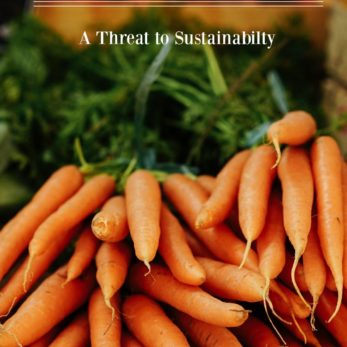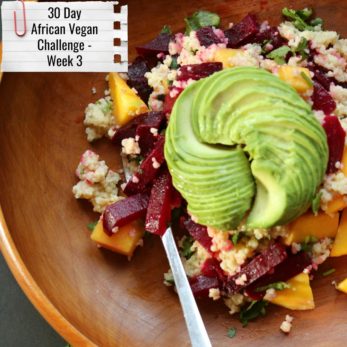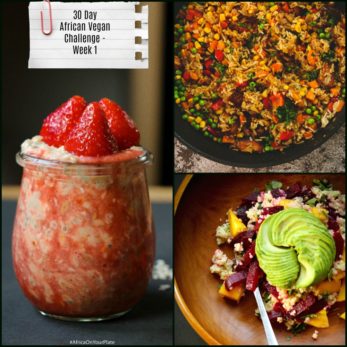A diagnosis of diabetes is tough enough. I had been suffering from impaired glucose tolerance for sometime. But, my diagnosis of gestational diabetes was much harder to assimilate. I learned to attempt to manage my blood sugar at a time when my body was responding in unpredictable ways. Here is a summary of the three most important lessons diabetes taught me.

.
If you hear the word “diabetes” and the mental image that springs to mind is an illness reserved for someone that’s overweight or obese, then, you are probably not alone with that thought. Because, this is the stereotype image painted of diabetes sufferers, in some circles. In truth, there are many people with diabetes who are neither overweight nor junk-food lovers.
What is Diabetes?
Diabetes Mellitus is a metabolic disorder caused by the deficiency of the hormone insulin. Insulin is a hormone, produced by the beta cells in the pancreas. It plays a vital role in the regulation of blood sugar by providing a signal to the body’s cells to absorb excess sugar from the blood for storage.
When we eat, food is broken down by the body’s enzymes into glucose. All metabolic activities in the body require energy in order to occur. The main source of energy for the body is glucose. If the body is unable to effectively use the glucose in the bloodstream, this could lead to diabetes.
.To illustrate, imagine that all the cells in your muscles have a door that is remote-sensor operated. This door opens to let “things” like glucose inside the cell, and vice versa, when its sensor is activated. Insulin is the hormone that acts as a sensor.
When the cells in the body sense the presence of insulin, the doors of the cells open up, and this allows glucose inside the cell. If the cells cannot detect the presence of insulin, the doors of the cells remain shut, and the glucose remains in the bloodstream for longer than it should. This, in turn, could lead to diabetes.
.
The Different Types of Diabetes
There are three distinct types of diabetes; Type 1, Type 2 and Gestational Diabetes.
In Type 1 diabetes, the body undergoes an autoimmune response where it starts attacking and destroying the beta cells in the pancreas. This leads to a reduction in the production of insulin, which in turn results in elevated blood sugar levels and diabetes.
Type 2 diabetes is slightly different. In Type 2 diabetes, the body produces enough insulin, but the cells in the body fail to detect the presence of insulin, a condition known as insulin resistance. This leads to a reduction in the amount of glucose absorbed from the bloodstream, leading to elevated blood sugar levels and diabetes.
In Gestational Diabetes, the hormones produced by the placenta during pregnancy encourage insulin resistance. This also results in elevated blood sugar levels which is harmful to both the growing baby and mother.
.
What Causes Diabetes?
While certain attempts have been made to link diabetes to an unhealthy lifestyle or the consumption of fast foods, it is, to a large extent, a myth that the food you eat causes diabetes. Diabetes isn’t a condition that one just “catches”, like a common cold, or the flu. However, certain risk factors such as genetic pre-disposition, ethnicity, weight, and lifestyle, of which diet is one component, can pre-dispose one to Type 2 diabetes.
When I was diagnosed with impaired glucose tolerance, I started taking steps to take control of my health and well-being, but it wasn’t until I was diagnosed with Gestational Diabetes and reliant of multiple-daily injections of insulin that I really came to terms with the challenges of managing my blood sugar at a time when my body was being highly unpredictable. Here are three of the most important lessons I learned from having diabetes.
.Your Health is a Present
How often does one contemplate the state of well-being while enjoying relatively good health? Probably not very often. We have all been guilty, at one point or another, of taking our state of good health for granted. It took a diabetes diagnosis to realise I was guilty of taking my health and well-being for granted.
Knowing that I could be living with diabetes for the rest of my life was very sobering and it forced me to look inwards, and practice a more mindful approach to everyday living. Because, most of what goes on in our lives is noise and mindful living helps one filter out the noise, and live in the present. Which, according to Eckhart Tolle, is the truest path to happiness and enlightenment.
..
.Be More Tolerant of Imperfection
We hear a lot about tolerance, but what exactly is tolerance? And how do you tolerate imperfection? Based on its Latin origin, tolerance is most commonly viewed negatively as “putting up with” something we dislike or even hate. Most people do not like imperfections, or what we deem to be imperfections. Some more than others. But, we all have our imperfections, some more than others. We make mistakes, we drop things clumsily, we stumble. And sometimes, through no apparent fault of ours, we make mistakes.
Diabetes showed me how difficult it is to achieve a constant state of perfection. Diabetes opened my eyes to the understanding that being in that state of complete and utter control, is not possible, all the time. There were days that I would perform a set of actions which impacted positively on my blood sugar levels, only to repeat the same set of actions a few days later, and get completely different test results.
Diabetes has taught me that despite the best intentions, consistency sometimes isn’t always possible. Everyone trips on life’s hurdles, sooner or later. The key is in being more forgiving and tolerant especially when we suffer a setback.
..
You Are Stronger Than You Know
Life is full of challenges, and twists and turns. And even though it’s not always easy to deal with the many changes that life sends your way, if you believe in yourself, and if you learn to look within for the necessary wisdom, and courage, you will always find the inner strength to keep going.
I used to have a crippling fear of needles before my diabetes diagnosis. My first thought when I realised I needed daily insulin injections was how I was going to overcome my fear of needles. However, I soon discovered that we all have within us the necessary strength, and courage to deal with whatever life sends our way. I was so convinced that I would never be able to face a future of multiple injections per day, but diabetes taught me that when push comes to shove, you will be much stronger than you think.
Managing diabetes is no easy challenge, but it wasn’t all bad. I embraced the principles of the traditional african diet and afro-fusion cooking. I also even took part in a 30-day African vegan challenge and loved it! I lost weight and lead a more active lifestyle, today.
It is almost ironic, but getting diagnosed with diabetes was the trigger I needed to become a more health-conscious consumer.
Have you recently been diagnosed with diabetes? What are your coping mechanisms?
![]()
.
Afro-fusion Food Lover.
Sustainable Food Advocate.
Completely nuts about Avocado.




